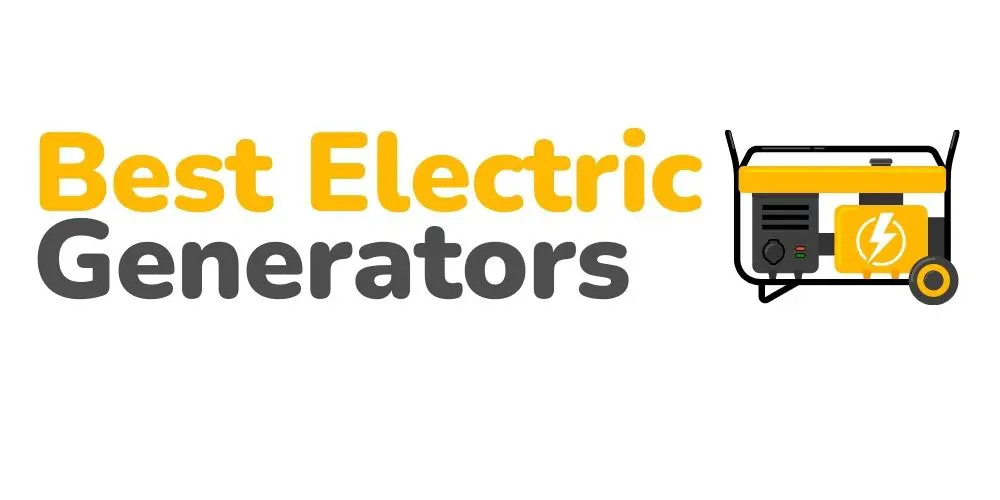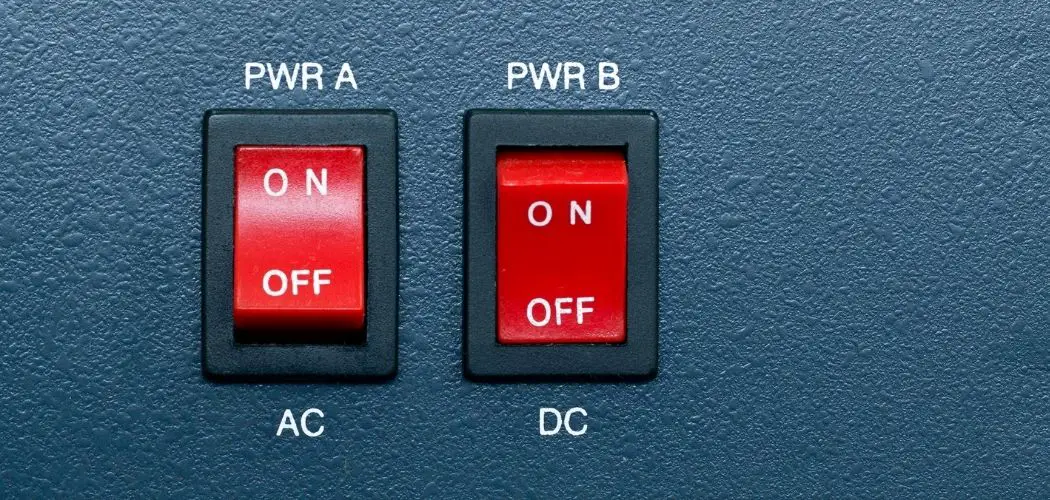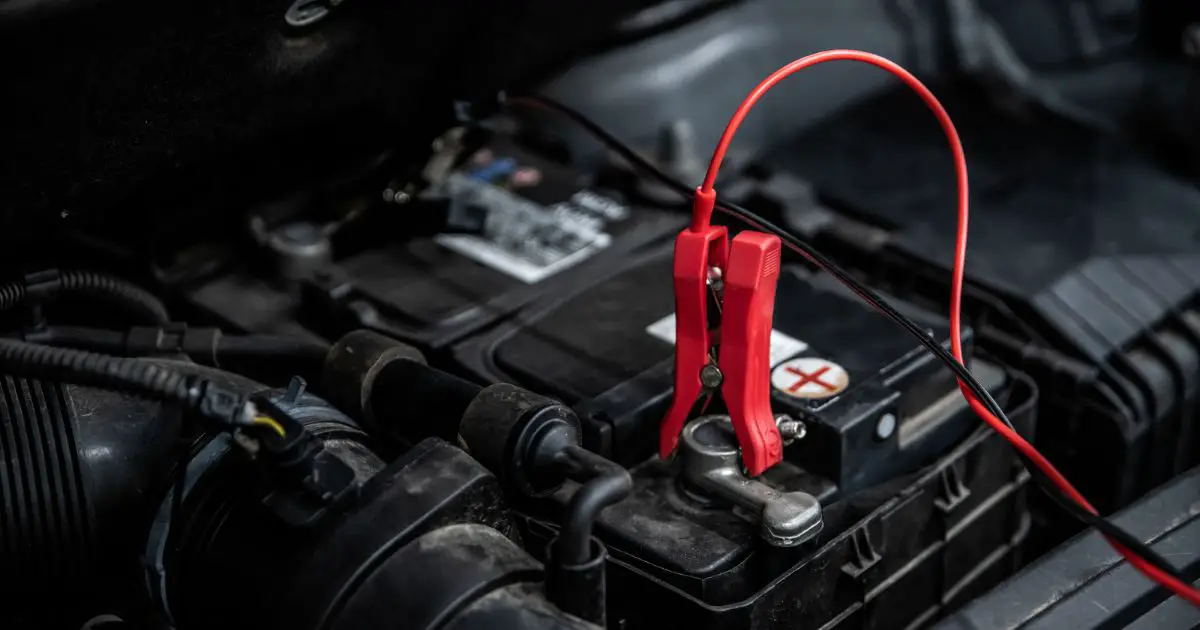If you have to deal with frequent power outages, you’ll know how handy a portable generator is. But do portable generators produce AC or DC power?
To answer the question, you can find generators in two types: AC and DC. So, a portable generator can generate both.
For most applications, AC power is the right choice. It’s safer, easier to implement, and compatible with all of your electronics.
To help you learn more about portable generators, here’s a short rundown of AC and DC generators.
How Generators Work:
A typical generator consists of a rotating part called the rotor, and a stationary part called the stator. The rotor consists of a permanent magnet with a North and South pole. The stator usually consists of a copper wire wound very tightly around a solid iron core.
When the rotor is rotated using any appropriate mechanical force, its magnetic field rotates along with it. As a result, the north and south poles of the rotor rotate, which induces an alternating voltage on the stator winding. This voltage is then fed to the generator output terminals.
This part of the generator, which consists of the rotor and the stator, always produces AC power. However, generators have more components than just this part. For instance, they have engines that generate the mechanical force that rotates the rotor in the first place. They may also have voltage regulators and many forms of circuit protection for safe and reliable operation.
In addition to that, there is also the DC generator. In a DC generator, there is an additional element called the commutator. The commutator is the key component that converts the AC power to DC power.
AC generators are considered the best for most applications. This is because all of your electronics already work on AC power. Plus, due to the lack of a commutator and the small size of the cables, AC generators are way easier to maintain.
Difference Between an Inverter and Regular Generator:
You’ve probably heard the term ‘inverter technology’ being tossed around. It’s in your air conditioners, refrigerators, and now even in your generators. But what exactly is an inverter generator? And how does it differ from a conventional generator?
Let’s start with conventional generators and the major issue with them. Conventional generators, while big and powerful, are not strangers to distortions. The power you receive from these generators is not steady. Now, how steady the current and voltage depends on the design of the generator. But in general, most conventional generators cannot maintain a steady RPM.
This not only leads to fluctuations in voltage but in frequency as well. For more powerful machinery, minor fluctuations would pose no threat. But for more sensitive devices such as laptops and mobile phones, you’ll want what is called “clean power.”
And that’s where inverter technology comes in. Remember how we said that generators provide AC power? An extra step involved in an inverter AC generator may seem redundant at first but is quite important.
In an inverter, right after the generator produces AC power, a circuit converts the AC power into DC power. However, this step is completely negated as an inverter circuit quickly converts it back into AC power.
As you can see, it seems quite pointless to convert AC to DC only to convert it back into DC. But this has one important side-effect: it significantly reduces the harmonic distortions in the signal.
Generators Are Capable of Both AC and DC Power:
Alright, that’s enough about generators. Now to answer the big question: do portable generators produce AC or DC?
And the answer is… they can produce both. There are two types of generators in this regard: AC and DC generators.
AC generators work on the principle of electromagnetic induction. They consist of two parts: a permanent magnet called the armature and a tightly wound coil called the field winding. When one part is rotated, the magnetic field generates an alternating current in the field winding.
As you can see, this generates an alternating current at the generator’s output terminals. This current is then fed into various regulation and protection circuits before it finally reaches your home.
A DC generator works on the same principle except it has an additional component: the commutator. A commutator works by shorting the path of the current and preventing it from flowing backward. Therefore, a generator can both produce AC as well as DC power. It all depends on which type you get.
Why Do Generators Produce AC Current?
Generators on their own, without commutators, tend to produce AC power. But, again, this has to do with how the generator works.
For a more simplistic approach, consider a loop of wire placed between the poles of a magnet. The magnetic field of the magnet will generate an electric current in the wire. However, if we were to rotate the wire (or the magnet), the poles would get switched. This would make a current flow in the reverse direction in the wire.
Now, replace the wire with the field winding and the magnet with the armature. When one of these rotates, an alternating current is produced in the field winding. This current alternates between moving forward and backward a set number of times, known as the frequency.
However, with a commutator, the current’s backward flow can be blocked. So, while a generator does produce AC power, you can find DC generators as well.
Why Is DC Not Used in Homes?
It’s the age-old debate: AC vs. DC? Which is best for use in homes? While many have deviated over it, it’s generally assumed that AC power is a lot safer to use in homes. And here’s why:
- Due to line losses, the voltage needs to be stepped up and down frequently during transmission. With DC power, you would need a lot of heavy equipment with moving parts for that. With AC power, however, you only need to use a transformer.
- AC generators use lesser components than DC generators, and hence cost less and are easier to maintain.
- AC power is a lot safer than DC power. This is because the current and voltage both go to 0 at some point, allowing muscles to relax. However, high voltages, whether AC or DC, are dangerous regardless.
- Due to the dangerous nature of DC, we would need to use lower voltages. Unfortunately, this would increase the current demand, leading to more extensive and thicker cables.
- DC switches must be bigger and harder since DC is prone to arcing. Arcing is when a spark occurs between two terminals that are close together but not in contact.
Which Is Better: AC Or DC?
Ultimately, it all comes down to what you need to use. For example, if you have machines that use AC power, consider an AC generator. Suppose your machines call for DC power; consider a DC generator.
If you don’t have any specific current needs, AC is a lot better. It reduces the sizes of the cables, and a simple rectifier circuit can convert it to DC.
For a typical home or RV application, an AC generator is the best choice. Your electronic devices probably already come with AC to DC converters, so you won’t even need to worry about conversion.
What are the two types of generators?
The two major types of generators are AC and DC generators. As the name suggests, AC generators generate AC power, whereas DC generators generate DC power.
What do slip rings do in AC generators?
Slip rings are hollow rings that provide contact with the brushes as well as help the rotor rotate. They are the bridges between the stator and the rotor.
Which is better: AC or DC?
It depends on the application. But for most households and RVs, an AC generator would suffice. It’s the standard everywhere, and almost every appliance runs on AC power. And those that use DC already have an AC to DC converter. Plus, the cables and switches can be made a lot smaller with DC power.
What type of generator is most efficient?
AC generators are more efficient than DC generators. As a result, they have lower costs and maintenance requirements. And if you can get the inverter ones, you’ll have clean, stable energy for a lifetime.
Conclusion
Portable generators make life a lot easier. But do portable generators produce AC or DC power?
They can produce both depending on the type of generator you have. For example, an AC generator will produce AC power and a DC generator DC power.
Essentially, for your homes, an AC generator would be a lot more practical. It’s cheaper, has lower maintenance, and all your devices are already adapted to it. Plus, the wires and switches can be made a lot smaller.
If you need to get an AC generator, try the inverter ones. They generate cleaner energy that can be supplied directly to your laptop!


